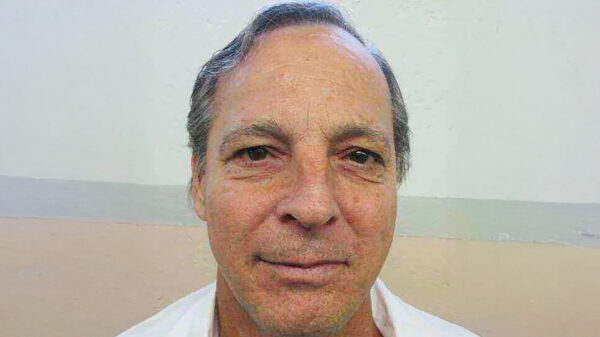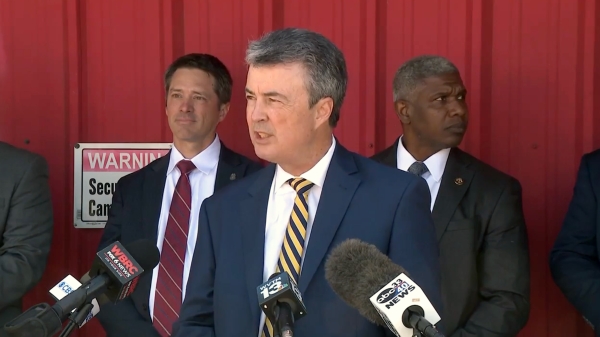Attorney General Steve Marshall is on a crusade to stop what he considers murder. In a court filing this week, he expressed intent to prosecute people who make travel arrangements for pregnant women to have out-of-state abortions. Marshall misses the deep irony in this announcement, following his enthusiastic race to invent the newest method for state murder: nitrogen hypoxia to carry out the death penalty. Marshall is at once proclaiming absolute intolerance to the killing of a fetus, and yet leading the charge on new ways to kill adult human beings.
Approximately 55 percent of Americans support the death penalty, or so they think. Critically, the gap in knowledge between the theory of capital punishment and what actually happens inside of the execution chamber is significant. So few Americans know the details.
Almost universally, on the other hand, the public acknowledges that torture methods of the past are barbaric and unconstitutional. Burning people alive at the stake. Drawing and quartering their bodies using horses. Nailing a person to a cross left to hang bleeding from his wounds until sepsis, starvation, or exposure sets in.
And then there is burying the condemned person alive. Practiced most widely in Roman and German societies, live burials lost favor by the 16th century, as the mode of execution was considered exceedingly cruel. Live burial was later replaced with drowning. For this form of execution, the condemned was sewn into a sack and drowned. Executioners felt that this form of death was preferable because no one could see the death struggles happening under the water.
Fast forward a few hundred years, and lethal injection has largely replaced other forms of execution considered barbaric by contemporary American standards. Robert Dunham, executive director of non-profit Death Penalty Information Center – which does not advocate for or against capital punishment, but instead aims to educate the public about it – describes that lethal injection took favor because it was believed to be a “simple medical procedure where someone goes to sleep.”
That characterization is far from the truth. Dunham details, “Studies now show this process is the equivalent to waterboarding, suffocation and being chemically burned at the stake. The people who developed the drug weren’t aware of what it actually did to a person. It wasn’t developed by a doctor.”
Alabama, for some reason, has now volunteered to be the guinea pig state responsible for developing the newest execution method called nitrogen hypoxia, touted as being more humane and efficient than lethal injection. The push for a new execution method comes on the heels of many botched lethal injection execution attempts — including three of the past four executions in Alabama.
Alabama has spent hundreds of thousands of dollars, if not more, to develop this novel protocol. Like with lethal injection before it, entities that have been hired to develop nitrogen hypoxia are not doctors. Even worse, the key person hired to assess the impact of nitrogen hypoxia on the body has repeatedly been sanctioned by courts across the country for lying about his qualifications as a pharmaceutical expert.
Nitrogen hypoxia is an exceedingly dangerous method of execution because it is an undetectable gas that can be lethal to anyone in the vicinity. Setting aside this practical reason not to use it, if we are going to move forward with this execution method, nitrogen hypoxia should just simply be called suffocation. It is, simply, the deprivation of oxygen until a person dies.
The state of Alabama has gone to great lengths to disguise the barbarity of the act by carrying out the execution on a gurney, with a medical mask, surrounded by licensed medical professionals. We are back to Medieval Europe, where executioners arranged to put more distance between the act of killing and the public perception of it by throwing a body into the ocean to drown rather than watching the struggle of someone buried alive. To be clear, the impact on the body of live burial, drowning, and nitrogen hypoxia is the same. We only sanitize the specifics to make the public more comfortable.
Would you volunteer to be the one to wrap the plastic bag around the heads of a condemned man, or hold them underwater until they drown? For those of you who answer yes, I can offer you only prayers. But for anyone who feels uncomfortable with that role, I tell you that that’s exactly what you’re doing. The state has created a few layers between you and the person they are killing, but we are all complicit in that torturous death.
I anticipate those who will argue that the condemned man deserves to die. I have my personal views, but I do not need to disagree with you to show you that what we are doing is fundamentally problematic.
For those who favor transparency in government, the way that we currently do executions should be abhorrent to you. Even in filings to federal judges, the state heavily redacts what they plan to do during a nitrogen hypoxia execution. Attorney General Marshall and Alabama Department of Corrections Commissioner John Hamm claim that the process must be secret in order to be carried out effectively. Disclosing methods would be a security risk, they say.
What they really mean is that the public would be horrified to learn exactly what is happening behind closed doors, what is being done in their names, and with their tax dollars. If the public knew the truth, that 55 percent of people in favor of the death penalty may dwindle. They may pause to reconsider their positions. That would be the real threat: a public that doesn’t trust a small group of secret executioners to kill in their names.

















































